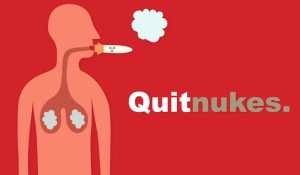Summertime in Hiroshima means heat and humidity. The noises of summer include things you might hear in any city, the clang of street cars, the persistent hum of cicadas, the low growl of motorbikes and the ding of bicycle bells reminding you to keep the way clear.
70 years ago, those summertime noises were silenced. Even the low background hum of bugs, cut off in a flash. Replaced by falling buildings, crumbling infrastructure, and cries for help.
In 1945 many people around the world were familiar with the suffering cries of those impacted by war. Atrocities were committed by many, and it would take several lifetimes to pronounce the names of all those whose lives were taken from them. 200,000 people were killed by only two bombs- code named “fat man” and “little boy” dropped on the cities of Hiroshima and Nagasaki.
Nuclear weapons have consequences so terrible that even now, 70 years later, the Red Cross continues to treat patients. According to a new report by the International Committee of the Red Cross and the Japanese Red Cross Society:
Initially, many medical experts expected the effect of radiation to diminish within 10 to 20 years. Contrary to this assumption, it is now clear that these atomic bombs have caused lifelong illnesses. New cases of cancer and leukaemia rates are still emerging and the number of atomic bomb survivors developing heart disease is rising.
More terrifying is the chance they will be used again.
Books and reports over the last few years have started to shed a light on the dark secret of accidents across the nuclear weapons enterprise. The Chatham House report Too Close for Comfort states it clearly:
Poor practices in nuclear weapons management have occurred at all levels of decision-making in the past, are still happening today and are likely to continue in the future.
For a weapon too terrible to use in conflict, there is only one sure way to prevent the use by accident- and that it their abolition. Getting to nuclear abolition has been a challenge on the international agenda since 1946, and there have been positive steps to reduce the number of weapons in some arsenals, as well as the number of states who have them, over the decades. However, there is still a long way to go to, and we cannot rely on the minority who want to keep nuclear weapons to be an honest broker in getting rid of them.
The same way you can’t expect a smoker to take the lead on banning cigarettes in the workplace. 
A new leadership on nuclear weapons has emerged. Driven by a broad understanding of their catastrophic humanitarian consequences, in partnership with civil society and international organisations, over 110 countries have pledged to fill the legal gap on nuclear weapons and negotiate their abolition.
70 years after the only use of atomic bombs in war, humanity has waited long enough. This is the year for negotiations to begin. This is the time to end the threat of nuclear weapons. This is the time to ban.
